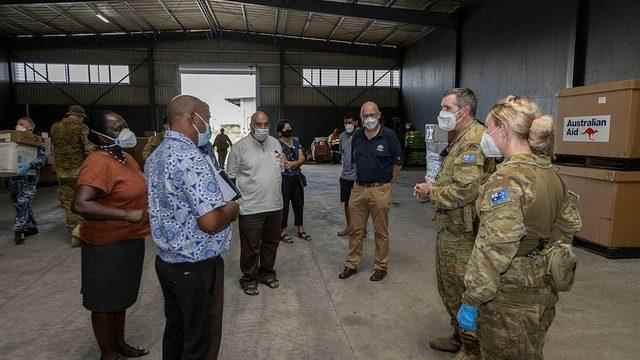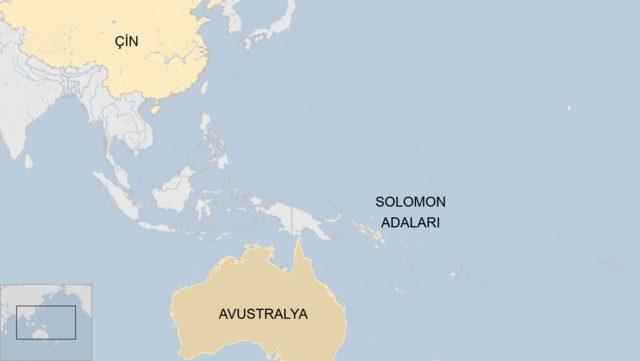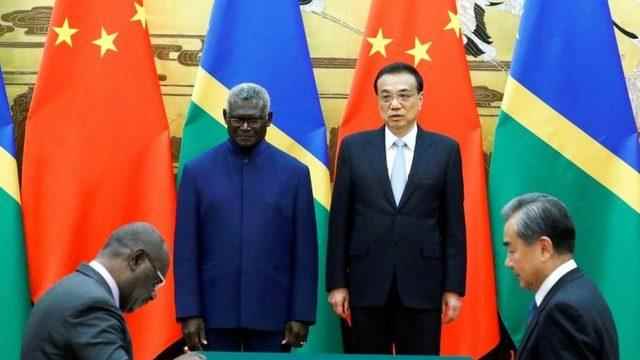Details of the security agreement negotiated by China and the Solomon Islands last week have caused great concern in Australia.
CHINA CAN SEND SOLDIERS
According to the leaked draft text, China may send troops to the Solomon Islands and it may be possible to establish a naval base in the future.
The Solomon Islands are located just north of Australia.
Australia, on the other hand, is the largest partner of the USA and the UK in the Pacific.
“CHINA WILL BE THE FIRST SPREADING AREA IN THE REGION”
Professor at the Australian Institute of International Affairs. “The details of the deal are still unclear,” says Alan Gyngell. “But even if China doesn’t have a military base there as feared, it will be China’s first expansion in the region.”
The Solomon Islands and Australia have had close relations for years.
Australia has been the largest donor country and number one development partner since World War II.
Until now, it was the island’s only security partner.
‘Caught Unacknowledged’
According to analysts, the Australian government was caught unprepared for this move. Moreover, he was warned about it.
Thinking that a few years ago, China began to approach Solomon with loans and economic investments to “expand its backyard”, Australia developed a new foreign policy focused on Pacific countries and increased the amount of aid.
But analysts think this move is insufficient.
China could soon become the Solomon Islands’ second security partner, along with Australia.
“THIS WAS A CLEAR FAILURE”
prof. “The purpose of Australia’s new foreign policy was to prevent such an event. It was a clear failure,” says Gyngell.
This is not just a concern for Australia. The UK and the US also want to limit China’s maneuvering space in the Indo-Pacific region through the AUKUS Pact they signed with Australia.
The United States and other Western countries are worried that this region will also turn into a potential conflict zone.
WHAT IS ON THE TABLE?
Solomon Islands Prime Minister Manasseh Sogavare loudly defended their right to make a security deal with China as an independent nation, saying that economic relations and infrastructure investments could also be improved.
“We have no intention of engaging in any geopolitical power war,” said Sogavare, noting that his nation would not join one side.
He did not give any information about whether the leaked document was the final version of the agreement.
But the breadth of the draft text has raised concerns.
The agreement also includes the right to stop and transit the Chinese navy on the islands. This could pave the way for a future navy establishment.
Another clause allows Beijing to send troops to the island to protect the Chinese on the islands and Chinese projects.
According to the draft, Solomonians will be able to request “police, military and other law enforcement agencies” from China.
“This clause allows China to send all kinds of military personnel. Moreover, it is not clear what rules these troops will be subject to,” says Mihai Sora, a Pacific islands analyst at the Australian think tank Lowy Institute.
The draft is much more comprehensive than the agreement the Solomon Islands have with Australia.
Under that agreement, Australia is allowed to send peacekeepers or emergency response troops upon request from Solomon.
The Solomon Islands have a history of violent rebellion.
Last year, deadly riots broke out in the capital Honiara; Australia, New Zealand, Fiji and Vanuatu sent troops to the island.

CHINA’S INTELLIGENCE CAPACITY MAY RISE
This agreement could change the balance of power in the region.
“Security agreements, in addition to the items they contain, are also an indication of a certain level of trust and friendship between the two countries,” says analyst Sora.
China’s military presence in the Pacific could also completely destroy the “peaceful” environment that the nations in the region have enjoyed for decades.
The region is co-managed by the member nations of Australia, New Zealand and the Pacific Islands Forum.
Alongside Australia, New Zealand warned that the move could “militarize the region”.
Analysts emphasize that China’s move may increase the possibility of intelligence and surveillance, even if it does not pose a threat of invasion in the region.
Even a small Chinese military presence in the South Pacific could cause Australia to spend its military resources on it.

“The Chinese base in this region is not the kind of base that will make a difference during the war. But when you have a military presence in a region, you prevent other countries from having a military presence in that region, that’s why the agreement is important,” says Sora.
The worst-case scenario, according to Sora, would be escalation in the South China Sea, where China has built artificial islands in disputed waters and restricted the passage of other countries’ ships and aircraft:
“Until now, Australia and other Pacific countries have enjoyed being in a calm zone and free movement in the Pacific region.
“They now have a competitor in the region.”
